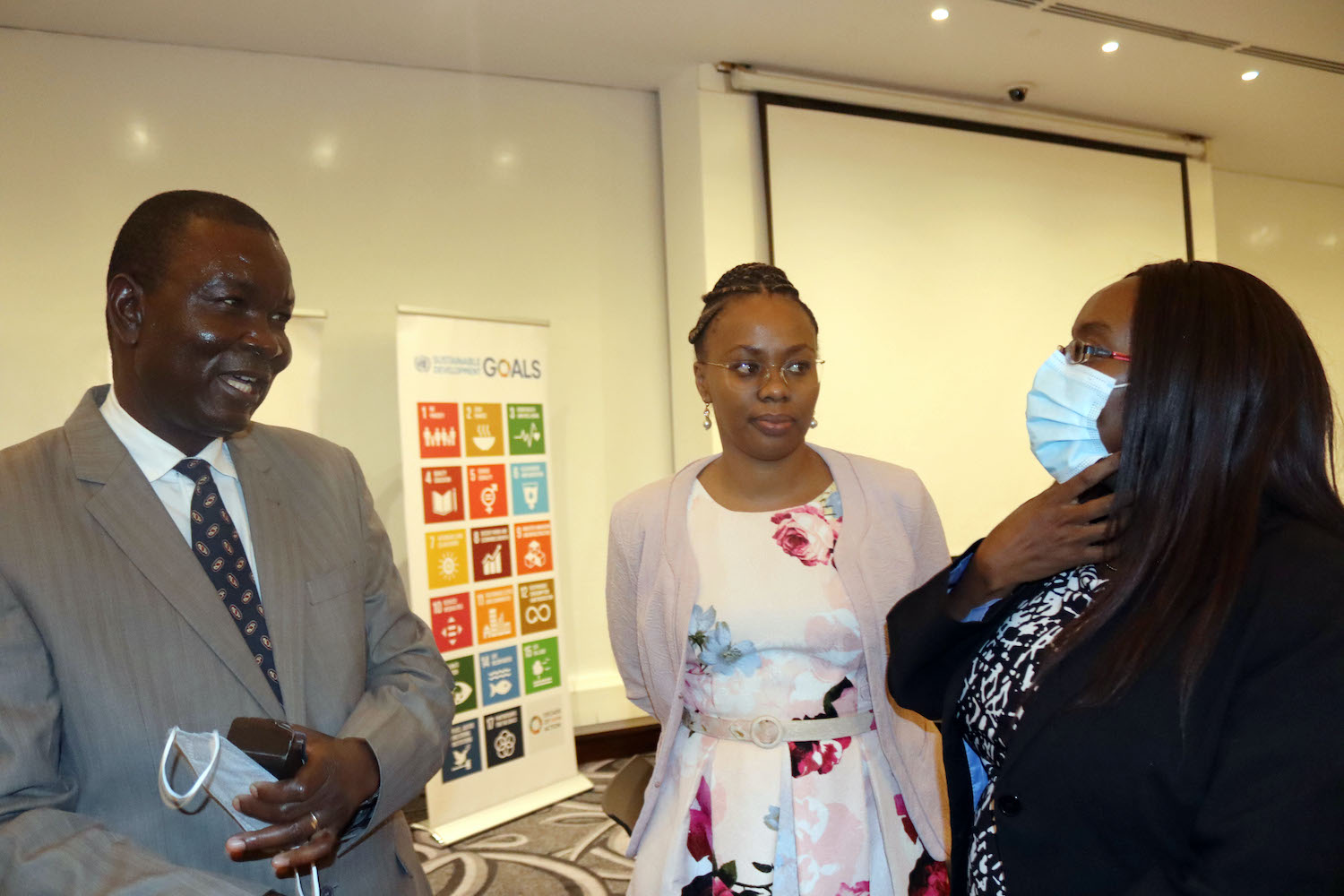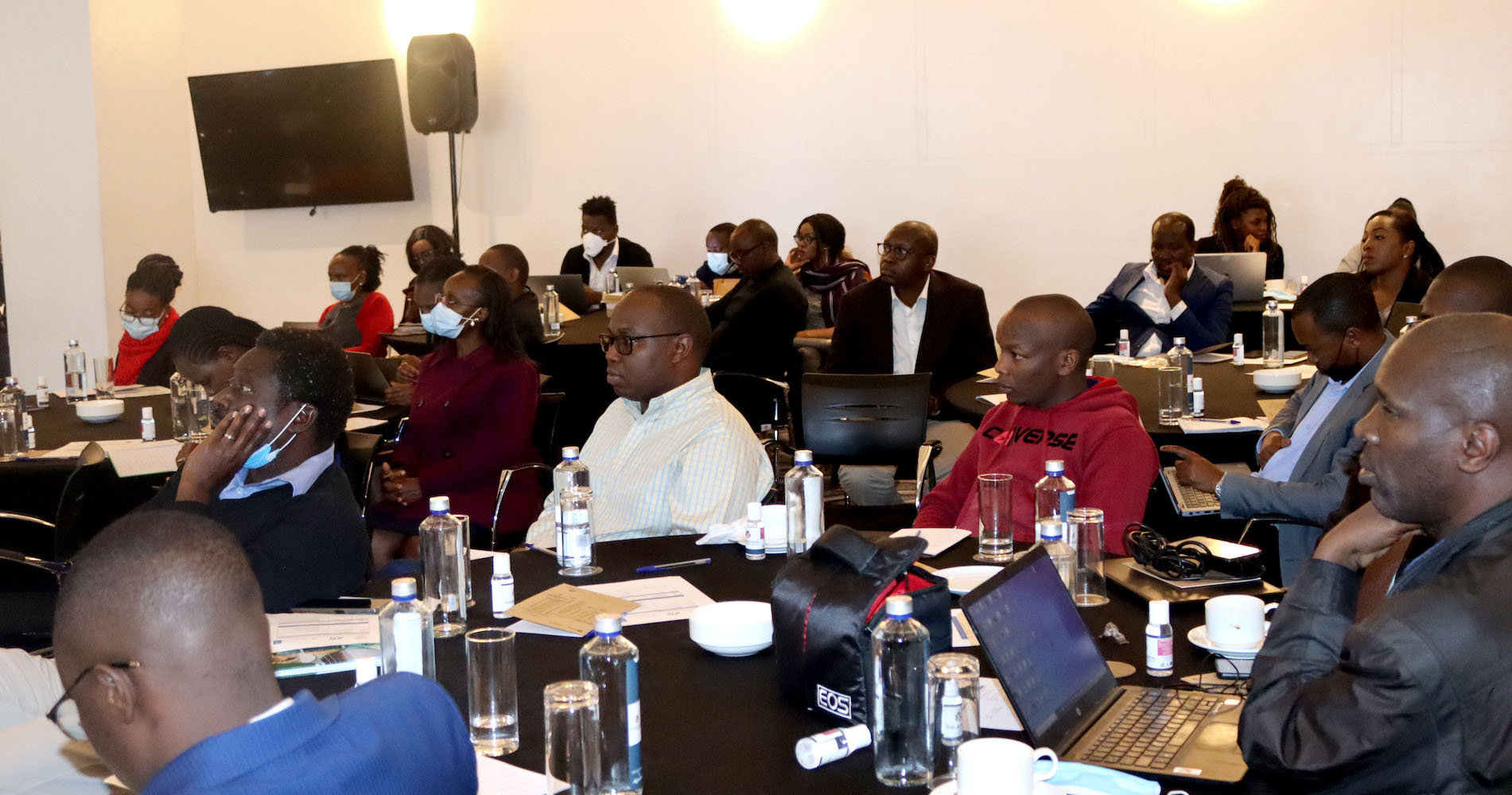The building blocks of this strategy have already been laid out in form of a comprehensive mapping study that paves way for structured interventions intended to catalyse conversion of innovative ideas and start-ups into commercially viable enterprises.
ACTS is working with local and international partners to develop an integrated strategy intended to spur innovation and support start-ups to successfully transition into commercially viable enterprises.
The stage is now set for implementation of recommendations deriving from a comprehensive mapping study conducted by ACTS, with a view to developing national support structures and associated mechanisms that will drive innovation and fuel the spirit of entrepreneurship in Kenya.

ACTS Executive Director, Prof. Tom Ogada (left), Caroline Kiarie of UNDP (centre) and Josephine Ndambuki of Konza Technopolis during a discussion at the validation workshop.
ACTS has partnered with the United Nations Development Programme (UNDP), the Kenyan National innovation Agency (KeNIA), Konza Technopolis Development Authority (KOTDA) and the Association of Countrywide Innovation Hubs (ACIH) to put in place the necessary mechanism and structures to enable start-ups successfully navigate the treacherous path of entrepreneurship.
According to the Executive Director, Prof. Tom Ogada, the potential of Kenya’s innovation ecosystem has not been fully exploited to drive the country’s socio-economic development. Hence, actors must coalesce their efforts anchored on an overarching strategy that will catalyse action towards actualising the vast potential of innovators and start-ups in the country.
“The Government of Kenya, through the relevant ministries, should develop a stand-alone innovation strategy to drive the country from a regional leader to a key player in the global innovation ecosystem. The strategy should provide a clear vision for the country’s innovation ecosystem, taking into consideration the existing strengths and opportunities as well as the identified challenges and gaps,” he said.
Prof. Ogada was speaking during a workshop to validate findings of a study on mapping the innovation ecosystem in Kenya in which he took participants through an elaborate presentation detailing the status of the country’s innovation landscape. The report covered regional and global innovation status, legislative and policy framework, historical perspective, key indicators, challenges and opportunities – and offered practical recommendations on how to enhance the ecosystem.

A cross-section of participants listen to a presentation during the validation workshop held in Nairobi.
He called for the formation of a technical team to develop an implementation framework for the recommendations proposed in the study. The framework should articulate implementation structure, coordination, responsibilities and roles, monitoring and reporting, and resource mobilization.
ACTS and other key actors in the Kenyan innovation ecosystem - UNDP, KOTDA, KeNIA and ACIH - have started discussions on how to implement some of the recommendations emerging from the study.
KeNIA Chief Executive, Tony Omwansa highlighted the need for broaden the innovation ecosystem thinking beyond startups and the hubs and provide ways of advancing innovation beyond the ICT context. The role of education in nurturing innovations, stronger mindsets, critical thinking, and problem-based learning is also important
The chair of ACIH, Magdalene Chekemoi, said it was important to focus on the needs and challenges that stifle innovation and ensure the existence of an inclusive and collaborative ecosystem.
The Chief Executive Officer of KOTDA, John Tanui, highlighted the need to identify and contextualise the metrics used in measuring the performance of the innovation ecosystem in terms of ease of doing businessin the country.
Finally, Bheki Bhembe, a Senior Economist at UNDP, said the programme’s Accelerator Lab aims to drive entrepreneurship and innovation to address the complex youth unemployment challenges.
Download

